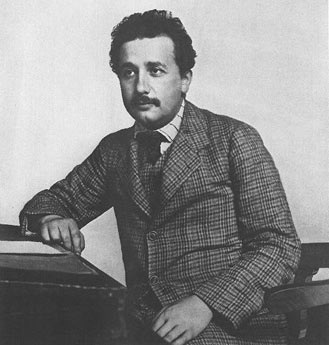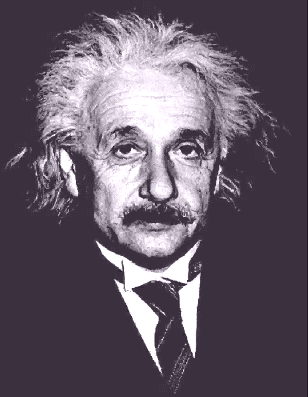You are hereBlogs / WcP.System.Thinker's blog / Albert Einstein - Emblem of Reason, Icon of Wisdom
Albert Einstein - Emblem of Reason, Icon of Wisdom
(quote)
Bob Dylan came up with one way to remember Albert Einstein: “Now you would not think to look at him/But he was famous long ago/For playing the electric violin/On Desolation Row.”
This is the pure distillate of celebrity. Dylan’s folk-rock vision of “Einstein, disguised as Robin Hood” is one in which the original man has disappeared into a symbolic fog where more or less any meaning may be found. Nowadays, such content-less fame has become common, though there aren’t many out there who match Einstein for resonance. But when he first exploded into public view, there were no precedents. No scientist before or since has so completely transcended the role of expert to become a universal emblem of reason.
...
Photographers caught that wit as well as the gravitas. It helped that he was astonishingly willing to play along. No one made him ride that bicycle or stick out his tongue straight into the barrel of an oncoming lens. Whatever weariness he felt at the crush of the public gaze, he was almost always willing to pause for the shot. There is a story that he was once asked—by perhaps the only person on earth who did not recognize him—what he did for a living. He replied that he was a photographer’s model.
He was just as open to sharing his ideas. Einstein took seriously questions about his science, up to the point of writing one of the best introductions to relativity for the lay reader. (Called Relativity, it’s still in print.) He handled the ridiculous questions, too, with humor and enormous stamina. He told his interrogators what he thought of Prohibition (against, though he didn’t drink), the death penalty (against, at least some of the time), and abortion (for, up to a certain point in the pregnancy). No scientist before Einstein had been so willing to stand before his public.
(unquote)
Images courtesy of NASA






















He was just as open to sharing his ideas. Einstein took seriously questions about his science, up to the point of writing one of the best introductions to relativity for the lay reader.